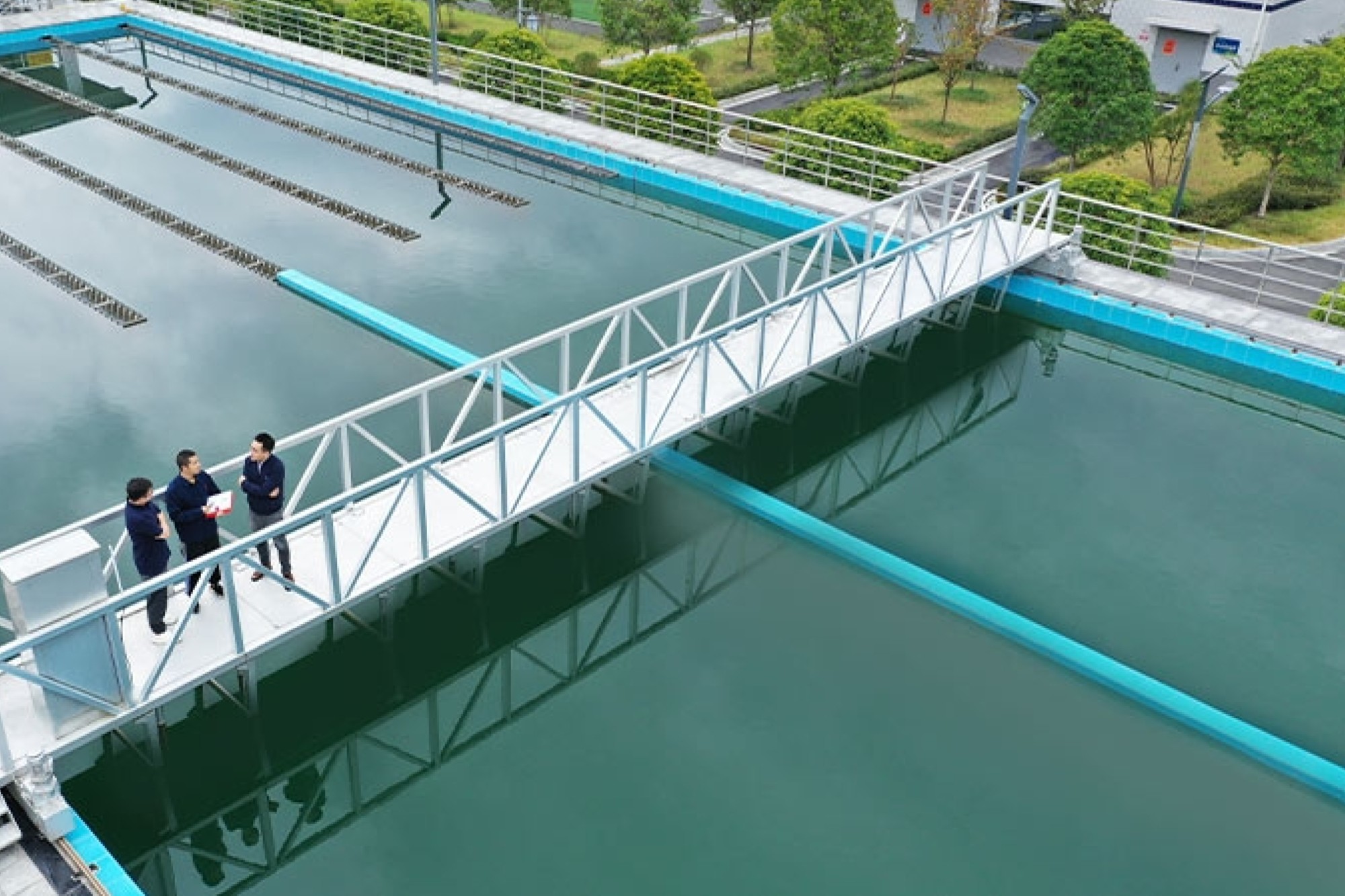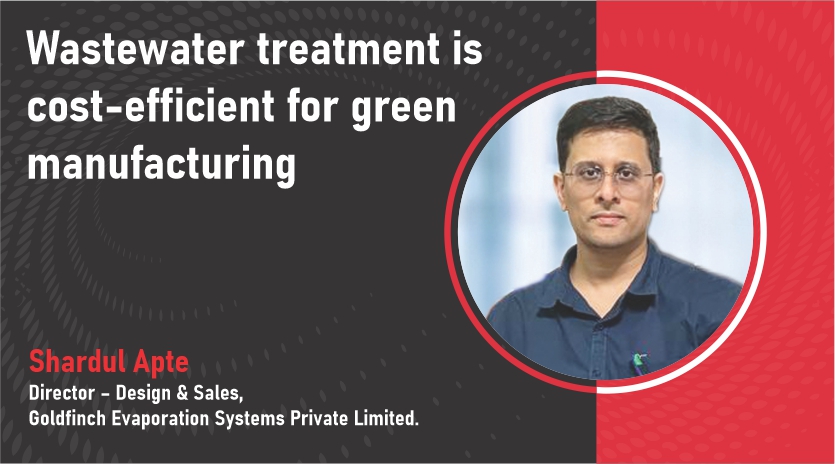Wastewater is a forgotten resource
By Staff Report September 19, 2024 11:58 am
Subhash Sethi, Chairman of SPML Infra, is debating improving wastewater treatment and reuse in India as water scarcity challenges demand innovative wastewater treatment solutions. Decentralised systems, stricter regulations, and advanced technologies are crucial to improving water reuse for agriculture, industries, and even potable purposes nationwide.
How wastewater management in India is evolving to address the current inadequacies in treatment and reuse?
The level of wastewater treatment across India needs to be improved. According to a CPCB report, sewage treatment plants (STPs) in India can treat more than a third of the daily sewage generated from Indian cities. Estimates suggest that urban centres generate about 72 billion litres of sewage daily. A large quantity of it is disposed of in the environment without treatment. However, wastewater management is evolving to meet significant challenges, particularly in reclaim and reuse. With substantial investments in treatment infrastructure, the government is attempting to bridge this gap.
Given diverse geography and population distribution, a trend towards decentralised wastewater treatment systems is emerging, especially in smaller towns. This approach can help address local needs more effectively. As water scarcity becomes more pressing, there is a growing emphasis on treating wastewater up to the standards suitable for reuse in agriculture, industries, and even potable purposes.
What measures can improve wastewater treatment and increase water reuse in India?
With impending water scarcity threatening livelihoods and industrial production, enhancing wastewater treatment and increasing water reuse have become essential. The foremost necessity is to increase investment in infrastructure development, more funds to build new wastewater treatment plants and upgrade existing ones, especially in densely populated urban areas. Promoting decentralised systems can be beneficial as small-scale, localised treatment facilities in rural areas and smaller towns can address the challenges of centralised systems.
Strict regulation should be implemented to enforce more stringent wastewater discharge standards. Financial incentives such as tax breaks or subsidies to industries and municipalities adopting effective wastewater treatment and reuse systems can drive progress. Public-private partnerships should be encouraged to leverage the expertise and resources of the private sector in wastewater management projects. Another step is investing in research and development to fund cost-effective, energy-efficient treatment technologies suitable for India’s diverse geographical and climatic conditions.
Improving water pricing by implementing realistic tariffs reflecting water treatment and distribution costs can encourage conservation and reuse. Raising public awareness about the importance of wastewater treatment and the potential of water reuse will also help gain support and participation.
Water and wastewater integrated management systems into urban planning ensure that new infrastructure developments incorporate adequate treatment and reuse systems. Data-driven management using digital technologies to monitor and optimise treatment processes and distribution systems can enhance efficiency.
How does recycling and reusing wastewater in industrial settings affect overall water consumption and contribute to sustainability efforts?
Recycling and reusing wastewater in industries has a significant positive impact on water consumption and sustainability efforts. It offers multiple benefits that extend beyond the industrial sector, contributing to broader environmental and economic sustainability.
Wastewater recycling and reuse substantially reduce overall water consumption. Treating and reusing water can also significantly decrease industries’ reliance on freshwater sources. This is particularly crucial in water-stressed regions where industrial water demand often competes with agricultural and domestic needs. Reducing freshwater withdrawal helps preserve natural water bodies and groundwater reserves and ensures water availability for other sectors.
From the sustainability perspective, wastewater recycling aligns closely with factory circular economy principles. It transforms what was once considered a waste product into a valuable resource while reducing industrial operations’ environmental footprint. This circular system conserves water and minimises the discharge of pollutants into the environment, as treated wastewater is reused rather than released into water bodies.The practice also contributes to energy conservation. Treating and reusing water on-site often requires less energy than sourcing, treating, and pumping fresh water from distant locations. This reduced energy demand translates to lower carbon emissions, further enhancing the sustainability of industries adopting these practices.
Please provide an overview of SPML’s contributions to wastewater treatment and management.
SPML Infra Limited has been a key player in water and wastewater management for the last 43 years, contributing significantly to environmental sustainability. The company has designed and constructed numerous municipal and industrial wastewater treatment plants with advanced automation systems and reliable treatment technologies.
Some of the selected projects executed by SPML Infra Limited include a 240 MLD Sewage Treatment Plant in Ahmedabad, Gujarat, designed in four modules of 60 MLD each for treating the sewage generated by the city. The 72 MLD Sewage Treatment Plant in Okhla, Delhi, has activated a sludge process with gas mixing technology, complete with a gasholder and compressor for energy generation. A similar Sewage Treatment Plant with 42 MLD capacity was built in Kanpur along with a 130 km sewerage network. The 70 MLD Sewage Treatment Plant was commissioned in Nasik, Maharashtra, featuring a facility to produce energy.
One of India’s largest and first comprehensive underground sewerage systems, comprising 113 km of sewer lines, was executed in Mira Bhayandar, Maharashtra. To treat the sewage of this satellite town of Mumbai has ten pumping stations and ten decentralised sewage treatment plants with a total capacity of 115 MLD. SPML Infra also constructed a 25 MGD effluent pumping station, including twin transmission mains that carry 33.34 MGD of treated effluent to a power plant for electricity generation that illuminated the XIX Commonwealth Games held in Delhi in 2010.
We have also executed several ‘Combined Effluent Treatment Plants’ (CETPs) of various capacities for the industrial sectors in Delhi and Haryana. SPML Infra has played a crucial role in advancing wastewater management across India.
What safety measures must be in place to protect workers handling and operating wastewater treatment systems?
SPML Infra prioritises the safety of engineers and workers operating wastewater treatment systems, ensuring protection against potential hazards. To safeguard employees, SPML Infra implements robust and comprehensive safety measures at all project sites, including wastewater treatment plants.
Our team strictly follows safety protocols and uses appropriate personal protective equipment (PPE) on-site. They receive training for the maintenance of PPE and emergency response procedures. Confined space entry procedures are critical, especially when accessing tanks, clarifiers, and digesters. The handling, storage, and disposal of hazardous chemicals used in the treatment process is carried out by trained workers who undergo comprehensive training, including spill containment and emergency response plans. Proper training supports sludge handling and disposal procedures.
Electrical safety is another focus area. To enhance safety, we ensure proper grounding and insulation of equipment, train workers on electrical hazard awareness and lock-out/tag-out procedures, and install emergency shut-off switches and ground fault circuit interrupters.
SPML Infra maintains reliable gas detection and alarm systems, continuous water quality monitoring, and early warning systems for potential hazards. Comprehensive training, adequate supervision, and a safety-first culture are central to the SPML Infra project management approach.
Cookie Consent
We use cookies to personalize your experience. By continuing to visit this website you agree to our Terms & Conditions, Privacy Policy and Cookie Policy.









